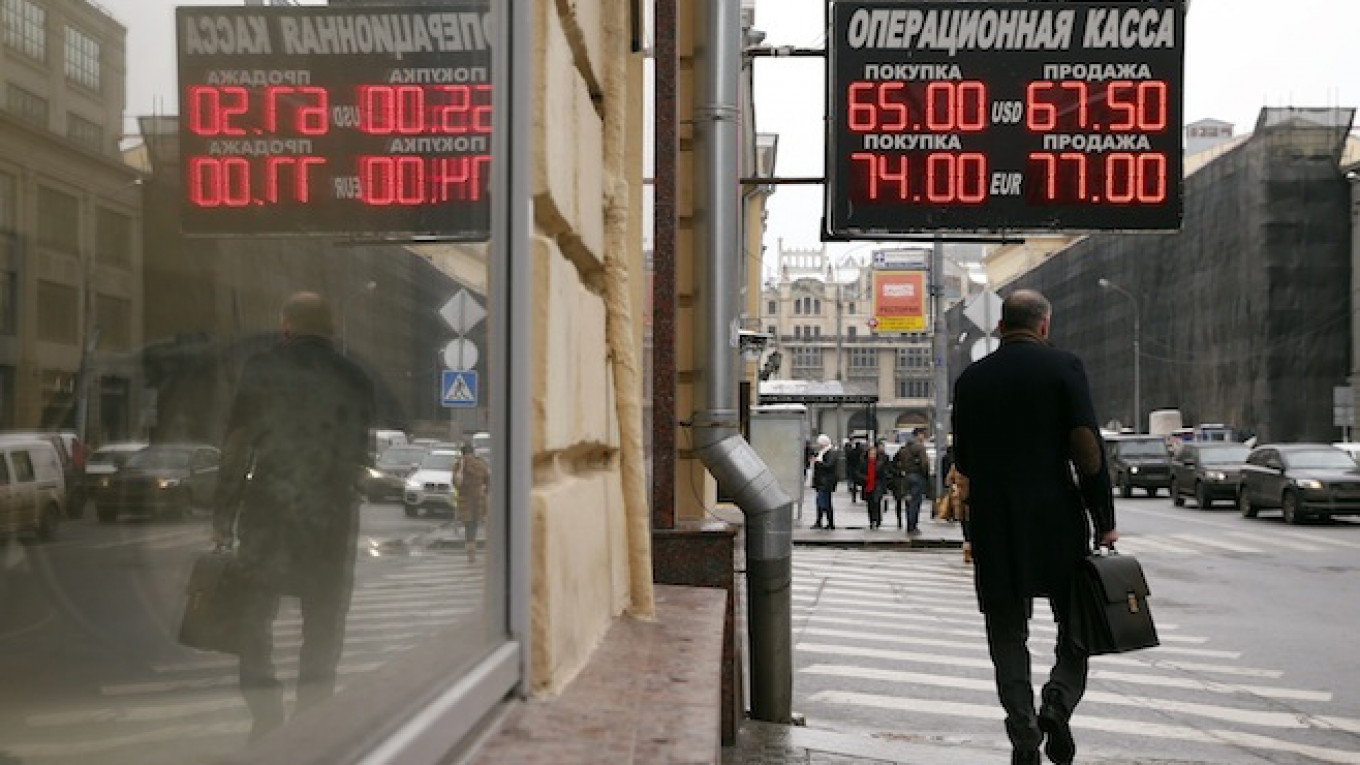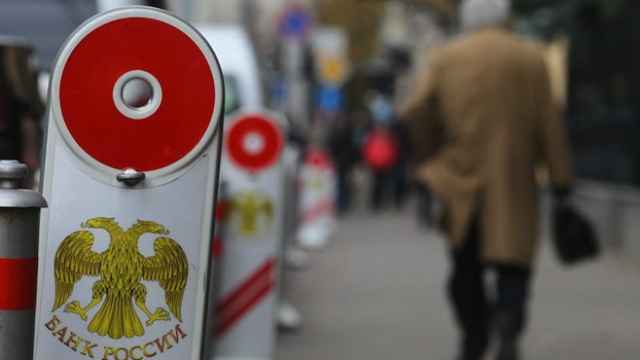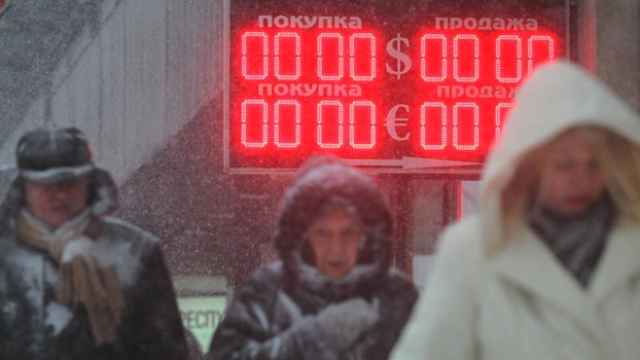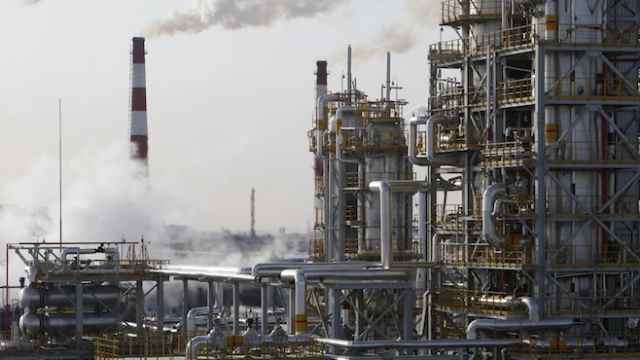The ruble was stronger on Friday and Russian shares rose, helped by a peace agreement to end the war in Ukraine and a rise in oil prices to over $60 per barrel.
The reaction of the ruble was relatively muted, however, reflecting the impact of a large foreign debt repayment by oil company Rosneft, and doubts about how soon Western sanctions against Russia will be lifted given continuing obstacles to peace in Ukraine.
By the end of trading on Friday, the ruble was 2.64 percent stronger against the dollar at 63.58 and 2.76 percent stronger at 74.03 versus the euro.
Russia's dollar-denominated RTS stock index was up 6 percent at 914 points, while the ruble-based MICEX was 1.96 percent higher at 1,838 points.
"Russian shares and bonds have shown a decent rally, but the currency market has reacted cooly," ING economist Dmitry Polevoy said in a note, adding that the ruble's muted reaction may be linked to a large foreign debt repayment by oil company Rosneft.
Rosneft said on Thursday it had repaid a $7 billion loan and denied it had converted rubles to fund the repayment. However, Polevoy said that the resulting outflow of foreign currency from banks was fueling demand for dollars indirectly.
Some analysts said that the ruble's cool reaction showed doubts about how soon Western sanctions against Russia will be lifted — the main way in which developments in Ukraine impact Russia's financial markets.
Commenting on Thursday's agreement, reached after marathon overnight talks in Minsk, German Chancellor Angela Merkel said it "offered a glimmer of hope, nothing more, nothing less."
"It's obvious that investors, gradually thinking about the Minsk agreements on Ukraine, have come to the conclusion that one shouldn't count on a rapid lifting of sanctions," Sergei Kozlovsky, head analyst at Grand Capital, said in a note.
Analysts at Sberbank Investment Research said that the peace deal "represents tangible progress," but "the design of a credible roadmap for peace and its successful implementation are still lacking."
However, many analysts saw good prospects for the ruble and other Russian assets to continue strengthening, also helped by a rebound in the oil price.
On Friday morning Brent crude rose over $60 a barrel for the first time since December, up over 1 percent on the day. Oil is a key driver for all Russian assets since it is the country's chief export.
Brent has gained over 4 percent this week, supported by signs that deeper industry spending cuts may curb excess supply.
A Message from The Moscow Times:
Dear readers,
We are facing unprecedented challenges. Russia's Prosecutor General's Office has designated The Moscow Times as an "undesirable" organization, criminalizing our work and putting our staff at risk of prosecution. This follows our earlier unjust labeling as a "foreign agent."
These actions are direct attempts to silence independent journalism in Russia. The authorities claim our work "discredits the decisions of the Russian leadership." We see things differently: we strive to provide accurate, unbiased reporting on Russia.
We, the journalists of The Moscow Times, refuse to be silenced. But to continue our work, we need your help.
Your support, no matter how small, makes a world of difference. If you can, please support us monthly starting from just $2. It's quick to set up, and every contribution makes a significant impact.
By supporting The Moscow Times, you're defending open, independent journalism in the face of repression. Thank you for standing with us.
Remind me later.






